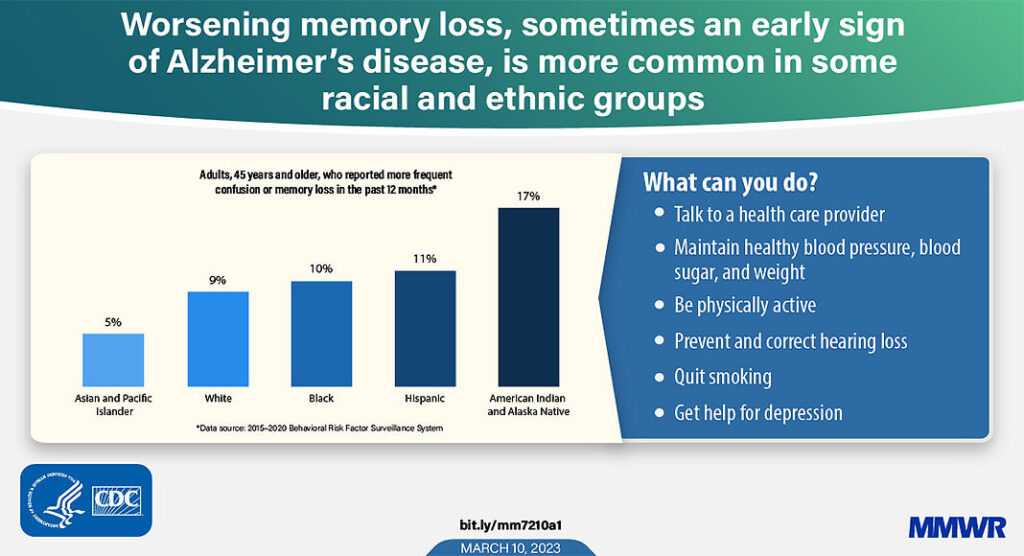
Mega Doctor News
CDC – We’ve all been there before. We can’t find our keys or remember what we went into the next room to get. But when memory loss starts to interfere with your daily life and is happening more often, it could be a sign of something more.
Know when to seek help
Memory loss that is getting worse and interferes with your daily life is not a normal part of aging. Memory lapses—like getting lost while driving on your familiar route to the grocery store or having trouble recalling very recent events—could be something more serious to discuss with a health care provider.
A growing problem
The most common sign of dementia is severe memory loss that tends to get worse over time. Dementia can be caused by a variety of conditions, but Alzheimer’s disease is the most common cause. An estimated 6.7 million older adults have Alzheimer’s disease in the United States, and that number is expected to double by 2060.1 The biggest increases will be among adults belonging to certain racial and ethnic minority groups.
Memory loss that is getting worse or more frequent can be an early warning sign of dementia, but not all people with worsening memory loss will go on to develop Alzheimer’s disease or another dementia.
A recent CDC study found that:
- 1 in 10 US adults 45 years and older reported worsening memory loss.
- Adults with at least a college education were less likely to report worsening memory loss than those with less formal education.
- Patterns of worsening memory loss varied across the United States, with more people reporting it in Alabama, Oklahoma, Louisiana, Florida, and West Virginia than in any other state.
- Less than half of adults who reported worsening memory loss had discussed it with a health care provider.

Fortunately, it’s possible to reduce your risk of worsening memory loss and, potentially, dementia later in life. An important first step is talking to your health care provider, who can suggest healthy lifestyle changes that can reduce your risk, such as staying physically active, maintaining strong social connections, not smoking, limiting alcohol consumption, and maintaining a healthy blood pressure. Your provider can also help to rule out other physical or mental causes of memory loss.
Worsening memory loss ranged from 5% among Asian and Pacific Islander adults to nearly 17% among American Indian and Alaska Native adults.
Information Source: CDC
References:
Alzheimer’s Association. 2023 Alzheimer’s disease facts and figures. Alzheimers Dement. 2023;19(4):1598-1695. doi:10.1002/alz.13016Wooten KG, McGuire LC, Olivari BS, Jackson EM, Croft JB. Racial and Ethnic Differences in Subjective Cognitive Decline — United States, 2015–2020. MMWR Morb Mortal Wkly Rep 2023;72:249–255. DOI: http://dx.doi.org












